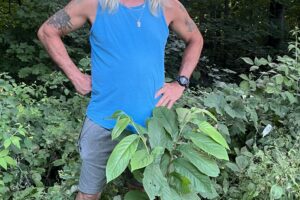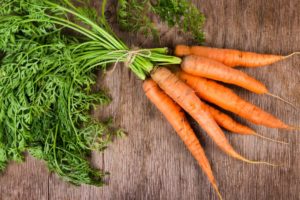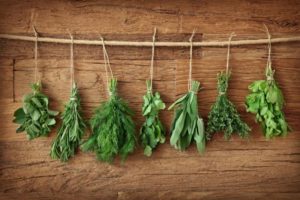We are often asked what the heck is biodynamic farming and what does it mean to be Demeter certified? Farms holding the Demeter certification help preserve wildlife and endangered species habitat, they must dedicate a minimum of 10% of their land base as a biodiversity reserve. They measure their farm’s fertility by the ability of their soil to sustain agricultural plant growth by using green manure, crop rotation and planting legumes and nitrogen catch crops. They build their own compost piles with materials from their farm such as chipped wood, leaves, plant litter and animal manure. They control disease, insect and weed through plant diversity and planned plantings. Use of mulching and stale bed planting also helps control the weeds. The biggest requirement in biodynamic farming is the use of special preparations that are like healing remedies for the earth. We are proud to hold this certification.
Here is what you can expect this week:
Strawberries It’s that time of year that everyone looks forward to juicy, sun ripened strawberries. To keep them fresh, sort and store them unwashed with their stems on in a shallow loosely covered container in your fridge. Remove the stems after washing them to avoid diluting the flavour.
Frisee Lettuce Also referred to as curly endive, a member of the chicory family. It has a deliciously bitter edge. Frisee can bring dimension and texture to any salad with its mildly peppery flavour and crunchy leaves. This green can be sautéed with olive oil and a few finely chopped garlic scapes and bacon for an interesting side dish.
Spring Onions You can never get enough of these sweet and mellow onions because they are so versatile. They add a wonderful fresh flavour to salads and sandwiches when sliced and eaten raw. They have a delicious sweet, savory and mild flavour when cooked. Store in a vegetable bag in the fridge and use within five days.
Hearty Salad Mix A mix of sweet tender lettuce with red and green mustard, kale, red and green mizuna, tatsoi and tsoi-sum. Makes for a nice salad.
Garlic Scapes These are tender shoots that grow out of the ground from garlic and are an early summer treat. They have a garlicy punch, to tame their bite is to blanch them. They become milder and sweeter when cooked. They make a great pesto which you can add to yogurt for a nice vegetable dip. Whisk finely chopped garlic scape into your homemade salad dressing or put them in a frittata or scrambled eggs. Grilling them on the BBQ is our favourate way to use them. Coat in olive oil and place them directly on the got grill (or use a grill basket) for about 10 minutes turning. Season with salt and pepper, its a great steak topping or side.
Asparagus Back for a last time before its done for the season. Fresh hand picked, there are so many ways to prepare. Boiling, steaming, roasting, sautéing, broiling and pan roasting are ways to make the tender green spears pop with flavour. We love to grill it right on the BBQ for a 15 minute smoky and sweetly caramelized side dish. Just toss with olive oil, perpendicular to the bars so they don’t fall through! Squeeze a bit of lemon juice and top with grated parmesan cheese and kosher salt.
Potted Parsley Plant Parsley is a popular herb used for garnish, sauces, salad dressings, soups and stuffing. Finely minced makes a wonderful seasoning served over potatoes, salads, steamed veggies, egg dishes and much more. Plant it in your garden or keep it in your kitchen in a sunny window. Keep the soil lightly moist and empty the saucer under the pot after each watering so the roots don’t sit in water. Feed the plant every two weeks. Harvest the outside stems first by cutting close to the ground.
Enjoy.




